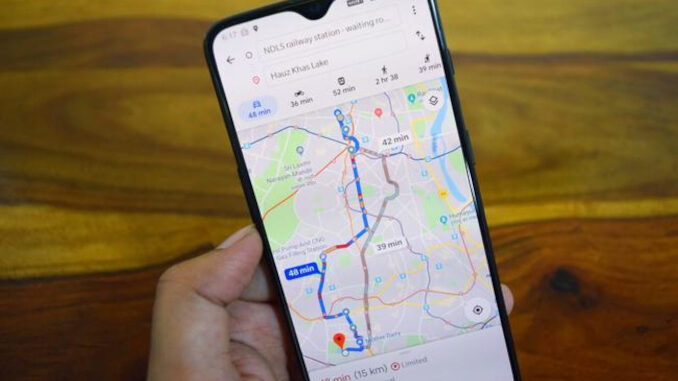
By Glen Allen, Esq.
Recent court filings reveal that Google, by means of its location history function that many Google users (often unknowingly) opt into, has tracked and recorded extensive location data for over 500 million people. Few of us are aware our location histories are being tracked and recorded in this way. Law enforcement agencies, state and federal, however, are keenly aware of it, and are making increasing use of this information to support criminal prosecutions by what are often called “geofence warrants.” Governmental use of geofence warrants has increased exponentially in the last several years—from about 20 per week in 2018 to over 250 per week in 2020 and rising steeply.
These geofence warrants present a grave danger to Americans’ Fourth Amendment right to be protected from unreasonable searches and seizures. Moreover, as law enforcement agencies often employ the warrants in connection with large public protests or assemblies—the Jan. 6 events, for example—the warrants also imperil Americans’ First Amendment rights of speech and assembly.
The geofence warrants typically proceed in three stages, each of questionable constitutional validity.
First, in what might be called the “dragnet” step, law enforcement uses legal process to compel Google to disclose an anonymized list of all Google user accounts for which there is saved location history information indicating that the Google users’ mobile devices were present in a defined geographic area during a defined timeframe. Notably, Google has acknowledged that the information it provides in response to this initial dragnet step is merely a probabilistic estimate and is only 68% likely to be accurate.
Second, the government reviews the anonymized dragnet production and then, if it wishes, can compel Google to provide additional location information beyond the time and geographic scope of the original request.
Finally, the government goes for the kill: it compels Google to provide account-identifying information for the anonymized device numbers that it determines are relevant to its investigation. Armed with this information, the government can then obtain yet other even more intrusive warrants, e.g., to seize and examine the contents of the account holder’s cell phone and search his or her house and papers.
The Department of Justice’s use of geofence warrants in connection with its arrest and prosecution of David Rhine, one of the Jan. 6 defendants, illustrates how a geofence warrant operates in practice. One week after the Jan. 6 events, the DOJ sought and obtained a geofence warrant compelling Google to identify all mobile devices within the approximate four-acre area surrounding and including the Capitol building between 2 p.m. and 6 p.m. on Jan. 6. The DOJ’s warrant application essentially relied on a “wrong place, wrong time, therefore likely guilty of a crime” assumption, stating that “because of the pandemic [and] the security surrounding the Capitol … there will probably be no tourists or bystanders to be found in any of this data.”
The DOJ then sought and obtained from Google subscriber information—the phone number, Google account, and other identifying information—for all devices that were within the geofence for even a single moment, again equating presence to criminality. By this means, the DOJ obtained Mr. Rhine’s Google account information and from this information was able, it asserted, to determine his estimated path of travel within the geofence.
The DOJ then cobbled together another warrant application, which was granted, using the geofence information and weak, second-hand tips from an unnamed individual, to search Rhine’s home and any phone or other digital device found with him. Based on all these searches, Rhine was arrested on Nov. 9, 2021, and now faces trial on multiple counts, including violent entry and disorderly conduct on Capitol grounds.
What is constitutionally objectionable about geofence warrants? The answer is simple: Geofence warrants satisfy neither the probable cause nor particularity requirements the Fourth Amendment demands.
Geofence warrants fail these requirements because they closely resemble the general warrants (general warrants, in essence, describe a crime but lack individualized description of suspects who may have committed the crime) that have been condemned throughout American constitutional history. Indeed, the British Crown’s use of general warrants against the sharp-tongued pro-American John Wilkes in 1763 aroused such popular indignation that the Wilkes case became a cause célèbre and was a major influence in the formation of the Fourth Amendment. In keeping with this tradition, the Supreme Court in its 1979 Ybarra v. Illinois case held that probable cause must be based on individualized facts, not group probabilities. The court has also struck down indiscriminate checkpoint searches.
The DOJ, in arguing for validation of the geofence warrants in the Jan. 6 cases, presented to the court evidence (also extracted from Google) that in the week after Jan. 6, many of the targeted Google accounts deleted their location histories. This, the government contended, was evidence of guilt. To those of us who watch with alarm our government’s increasingly lawless behavior, the deletion of the location histories more credibly reflects an understandable distrust of a government willing to commandeer Big Tech data—and executives—to serve unconstitutional purposes
Glen Allen is an attorney and the founder of the Free Expression Foundation, a 501(c)(3) charitable foundation dedicated to the defense of citizens denied their constitutional right to free expression. See more at FreeExpressionFoundation.org or write FEF, P.O. Box 65242, Baltimore, MD 21209-9998.





